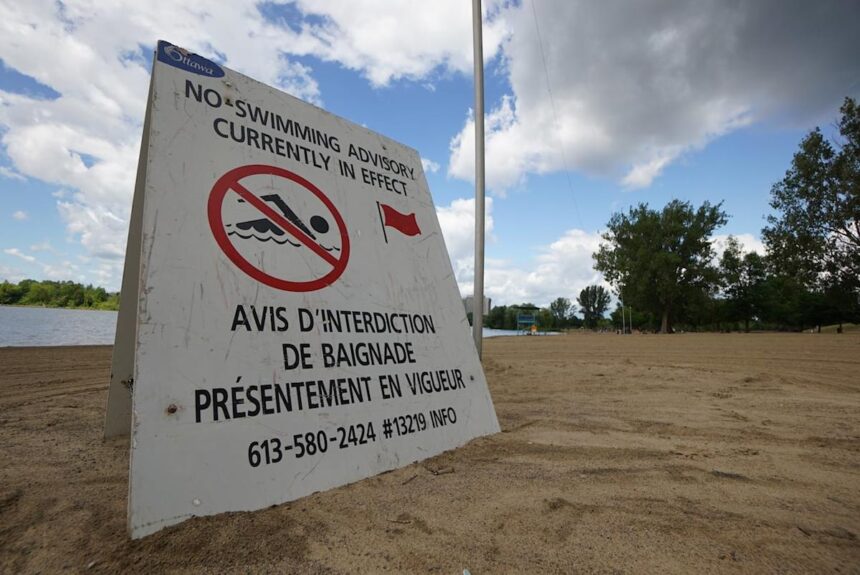Article – Ottawa’s beach water testing reduction has sparked community debate during our peak swimming season. Local health officials maintain the program still meets safety standards despite scaled-back frequency.
Ottawa Public Health recently adjusted its beach water testing program, reducing sampling from daily to twice weekly at most supervised beaches. This change has raised questions from residents concerned about potential health risks during summer’s busiest swimming months.
“We’re absolutely committed to protecting public health while being fiscally responsible,” explained Dr. Vera Etches, Ottawa’s Medical Officer of Health, during Monday’s Board of Health meeting. “Our revised testing schedule exceeds provincial requirements while ensuring safe recreational water use.”
The modified approach aligns Ottawa with other health units across Ontario that follow the provincial minimum standard of weekly testing. Despite the reduction, Ottawa Public Health continues testing above this baseline at its supervised beaches.
Several residents have expressed concerns about potential gaps in water quality information. “My family swims at Mooney’s Bay three times weekly,” said Riverside Park resident Jennifer Coleman. “With less frequent testing, I worry about swimming between sample dates when conditions might change.”
Water quality can fluctuate rapidly following heavy rainfall, which washes contaminants into waterways. These events can temporarily elevate E. coli levels beyond safe swimming thresholds.
City Councillor Theresa Kavanagh acknowledged these concerns during the meeting. “I’ve heard from many constituents who appreciate our historically robust testing program. We need to balance fiscal responsibility with maintaining public confidence in our recreational waters.”
Ottawa Public Health officials emphasized that beach water quality tends to remain consistent between testing days under normal weather conditions. Their data shows that significant fluctuations typically correlate with rainfall events, which they continue to monitor closely.
The health unit maintains an active notification system through their website and social media channels. Beaches displaying “no swimming” advisories should be avoided until testing confirms water quality has returned to acceptable levels.
“We encourage swimmers to check current beach conditions before heading out,” said James Corbett, Manager of Health Protection at Ottawa Public Health. “Our website provides up-to-date advisories, and we recommend avoiding swimming for 48 hours after heavy rainfall regardless of official test results.”
Local environmental groups have offered mixed reactions to the changes. The Ottawa Riverkeeper organization acknowledges budget constraints but emphasizes the importance of maintaining public confidence in water quality monitoring programs.
“Transparent communication about testing limitations is crucial,” said Patrick Hamilton, Ottawa Riverkeeper’s Executive Director. “We support Ottawa Public Health’s efforts to balance resources while protecting public health, but we’ll continue advocating for comprehensive monitoring of our recreational waters.”
Ottawa beaches typically attract thousands of visitors during summer months, making water quality a significant public health concern. The current testing program covers Petrie Island East Bay, Petrie Island River Beaches, Mooney’s Bay, Britannia Beach, and Westboro Beach.
The health unit reminds swimmers that personal observation remains important regardless of testing frequency. Avoid swimming in cloudy water, after heavy rainfall, or when visible debris or algae are present.
For the latest beach water quality information, residents can visit Ottawa Public Health’s website or call the Beach Water Quality Line at 613-580-2424 ext. 13219.







